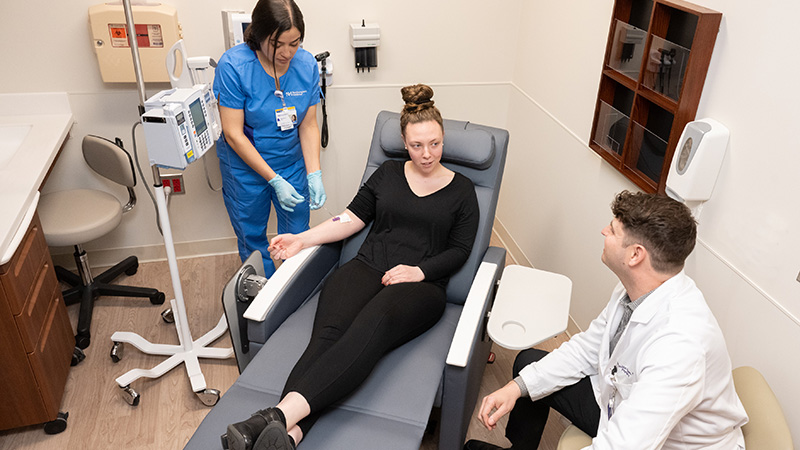5 Tips for Seasonal Affective Disorder
Boost Your Mood During Shorter Days
Updated January 2023
As seasons come and go, so might your mood.
There may be more to the "winter blues" than just the cold temperatures. In fact, the depression you feel during changing seasons could be seasonal affective disorder (SAD).
Symptoms of SAD can include:
- Feelings of sadness, hopelessness or worthlessness
- Irritability
- Decreased energy
- Thoughts of suicide or self-harm
Be mindful and be present with the people you care about.— Cheryl Beutell, APRN
"SAD has to do a lot with our connection with nature and with our body's reaction to light and our environment," explains Cheryl Beutell, APRN, CNP, a psychiatric nurse practitioner at Northwestern Medicine. "If you feel down for days at a time or aren't motivated to do the things you love or need to do at one time or another, that's when it becomes more concerning."
Take Care of Yourself
To keep your mood up when the daylight diminishes, practice healthy habits like exercising regularly, getting enough sleep and maintaining a well-balanced diet.
To help you address SAD:
- Ask your care team to check your vitamin D levels. If you have an existing deficiency, the change in seasons may have more of an effect than normal. A test can confirm if you might need more vitamin D.
- Look into light therapy. This involves taking in doses of artificial light from a bright light box to help regulate your circadian rhythm and ward off some symptoms of SAD.
- Get out and get active. Even in the winter cold, you can still be active and reap the benefits of time spent in nature. Just be sure to bundle up.
- See a psychotherapist. Trained mental health professionals can help you explore and process your feelings in a healthy way. They can also help you develop proactive ways to work against depression and anxiety.
If your symptoms continue, worsen or involve thoughts of hurting yourself or someone else, see a medical professional immediately.
Beutell says that when in doubt, listen to your body and mind and make space for the things that bring you joy.
"Make a meal for a friend, have tea with someone or do an act of kindness," she explains. "Be mindful and be present with the people you care about."





